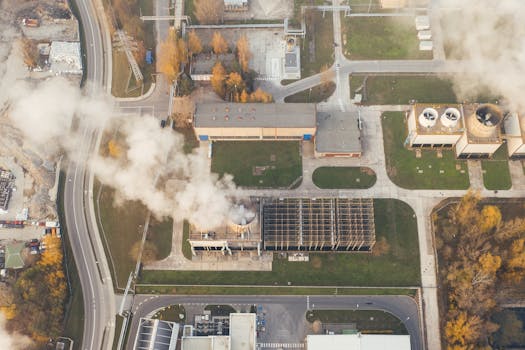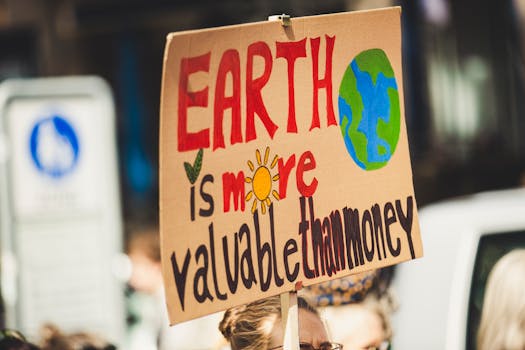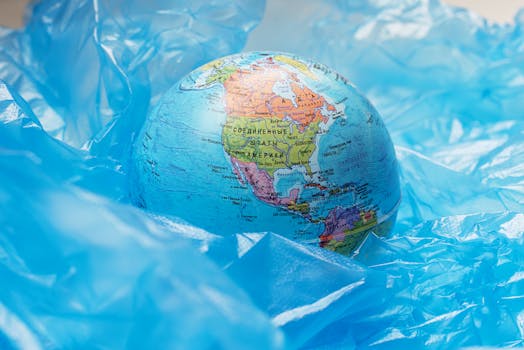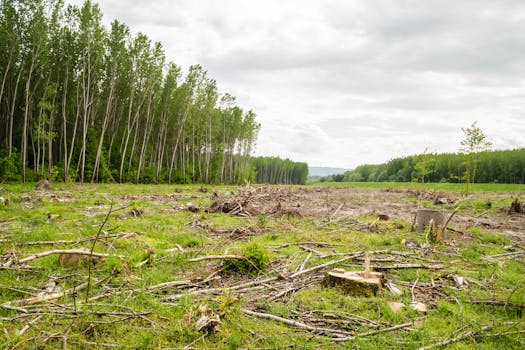
“
Understanding the Science Behind Climate Change and its Impacts
Focus Keyword: Climate Change

Climate change is a pressing issue that affects us all. It is a complex and multifaceted phenomenon that has been studied by scientists for decades. In this article, we will delve into the science behind climate change and its impacts on our planet.
What is Climate Change?

Climate change refers to the long-term warming of the planet due to an increase in average global temperatures. This warming is primarily caused by the increasing levels of greenhouse gases in the Earth’s atmosphere, such as carbon dioxide, methane, and water vapor. These gases trap heat from the sun, preventing it from being released back into space, and thereby warming the planet.
The Greenhouse Effect

The greenhouse effect is a natural process that occurs when certain gases in the Earth’s atmosphere, such as carbon dioxide and water vapor, trap heat from the sun. This process is essential for life on Earth, as it allows the planet to maintain a warm enough temperature to support living organisms. However, human activities such as burning fossil fuels and deforestation have increased the levels of greenhouse gases in the atmosphere, leading to an enhancement of the greenhouse effect and an increase in global temperatures.
Causes of Climate Change

There are several causes of climate change, including:
- Burning of fossil fuels: The burning of fossil fuels such as coal, oil, and gas releases large amounts of carbon dioxide into the atmosphere, contributing to the greenhouse effect.
- Deforestation: The clearance of forests for agriculture, urbanization, and other purposes releases carbon stored in trees and reduces the ability of forests to act as carbon sinks.
- Agriculture: The production of meat, especially beef, and other animal products leads to the release of methane and nitrous oxide, which are potent greenhouse gases.
- Industrial processes: The production of cement, steel, and other goods leads to the release of greenhouse gases such as carbon dioxide and methane.
Impacts of Climate Change

Climate change has numerous impacts on the environment, human health, and the economy. Some of the most significant impacts include:
- Rising sea levels: The melting of glaciers and ice sheets, as well as the expansion of seawater as it warms, leads to an increase in sea levels, which can result in coastal flooding and erosion.
- More frequent and severe weather events: Climate change leads to an increase in extreme weather events such as heatwaves, droughts, and heavy rainfall, which can have devastating impacts on communities and ecosystems.
- Water scarcity: Changes in precipitation patterns and increased evaporation due to warmer temperatures can lead to droughts and water scarcity, which can have significant impacts on agriculture, industry, and human consumption.
- Loss of biodiversity: Climate change can lead to the extinction of many plant and animal species, which can have significant impacts on ecosystems and human well-being.
What Can We Do to Mitigate Climate Change?

There are many steps that can be taken to mitigate climate change, including:
- Transitioning to renewable energy sources: The use of renewable energy sources such as solar, wind, and hydroelectric power can significantly reduce greenhouse gas emissions. Learn more in our article on Breakthroughs in Renewable Energy Technology.
- Increasing energy efficiency: Improving the energy efficiency of buildings, appliances, and vehicles can reduce energy consumption and lower emissions.
- Electrifying transportation: The adoption of electric vehicles can significantly reduce greenhouse gas emissions from transportation.
- Carbon capture and storage: The development and deployment of carbon capture and storage technologies can reduce emissions from industrial sources.
- Sustainable land use: The adoption of sustainable land use practices such as reforestation and agroforestry can sequester carbon dioxide from the atmosphere.
Conclusion

Climate change is a pressing issue that requires immediate attention and action. By understanding the science behind climate change and its impacts, we can work towards mitigating its effects and creating a more sustainable future for all.






